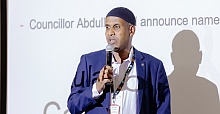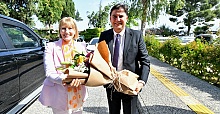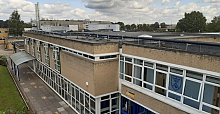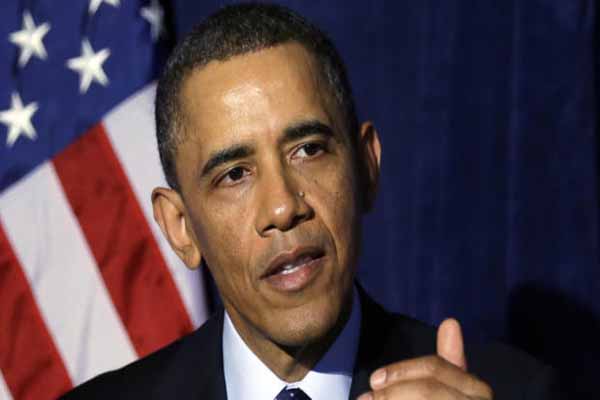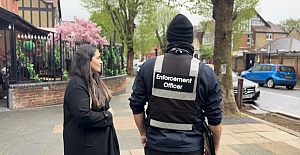Russia and the United States put aside bitter differences over Syria to strike a deal on Saturday that by removing President Bashar al-Assad's chemical arsenal may avert U.S. military action against him.
After three days of talks in Geneva, U.S. Secretary of State John Kerry and Russian Foreign Minister Sergei Lavrov demanded Assad account for his secret stockpile within a week and let international inspectors eliminate all the weapons by the middle of next year - an "ambitious" target, Kerry said.
The accord leaves major questions unanswered, including how feasible such a major disarmament can be in the midst of civil war and at what point Washington might yet make good on a continued threat to attack if it thinks Assad is reneging.
Under the Geneva pact, the United States and Russia will back a U.N. enforcement mechanism. But its terms are not yet set. Russia is unlikely to support the military option that President Barack Obama said he was still ready to use.
"If diplomacy fails, the United States remains prepared to act," Obama said. "The international community expects the Assad regime to live up to its public commitments."
To that end, the Pentagon said U.S. military forces were still positioned to strike, if ordered.
But for Assad's opponents, who two weeks ago thought U.S. missile strikes were imminent in response to a gas attack on rebel territory, the deal was a blow to hopes of swinging the war their way. Kerry and Lavrov said it could herald broader peace talks, as warplanes hit rebel positions again near Damascus.
The accord, however, was as much about U.S.-Russian ties as it was about Syria. The conflict has chilled relations to levels recalling the Cold War.
In reaching a bilateral deal after what one U.S. official described as three days of "hard-fought" debate, Moscow and Washington can each count benefits.
For Russian President Vladimir Putin, it brings management of the Syrian crisis back to the United Nations. For Obama, it solves the dilemma created by Congress's reluctance to back military strikes that he was preparing without a U.N. mandate.
Lavrov told a joint news conference in Geneva, "It shows that when there is a will ... Russia and the United States can get results on the most important problems.
"The successful realisation of this agreement will have meaning not only from the point of view of the common goal of eliminating all arsenals of chemical weapons, but also to avoid the military scenario that would be catastrophic for this region and international relations on the whole."
China, which has opposed military intervention in Syria all along, welcomed the deal.
"We believe that this framework agreement has ameliorated the present explosive and tense situation in Syria," Foreign Minister Wang Yi told visiting French Foreign Minister Laurent Fabius.
Kerry acknowledged that further success was far from guaranteed: "The implementation of this framework, which will require the vigilance and the investment of the international community, and full accountability of the Assad regime, presents a hard road ahead," he said.
Despite a measure of camaraderie on display in banter between the two men during the presentation of the two-page framework agreement, they remained openly at odds over the U.S. willingness to use force in Syria without U.N. backing.


 Prime Minister Keir Starmer's 2025 Easter message
Prime Minister Keir Starmer's 2025 Easter message After Nesil Caliskan a by-election will be held in Jubilee ward in Enfield
After Nesil Caliskan a by-election will be held in Jubilee ward in Enfield Publishing the analysis, Labour’s Cllr Ergin Erbil said Everybody in Enfield deserves basic rights
Publishing the analysis, Labour’s Cllr Ergin Erbil said Everybody in Enfield deserves basic rights Gaza-Israel conflict Statement from Cllr Ergin Erbil, Leader of Enfield Council
Gaza-Israel conflict Statement from Cllr Ergin Erbil, Leader of Enfield Council UK AMBASSADOR TO TURKEY VISITS FETHIYE
UK AMBASSADOR TO TURKEY VISITS FETHIYE Journalists from Europe held the Turkish Media Workshop in Skopje
Journalists from Europe held the Turkish Media Workshop in Skopje The European Union called on Turkey to uphold democratic values
The European Union called on Turkey to uphold democratic values Turkish citizens in London said Rights, Law, Justice
Turkish citizens in London said Rights, Law, Justice The 'Prince of Paris' has impressed in his first EuroLeague season
The 'Prince of Paris' has impressed in his first EuroLeague season Saran Media And Euroleague Basketball Extend Media Rights Partnership for Four More Years
Saran Media And Euroleague Basketball Extend Media Rights Partnership for Four More Years Will Rangers be Jose Mourinho’s next victim?
Will Rangers be Jose Mourinho’s next victim? Jose Mourinho's Fenerbahce face Rangers on Thursday
Jose Mourinho's Fenerbahce face Rangers on Thursday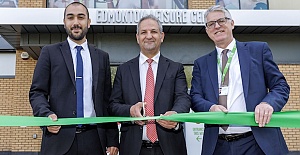 Residents welcomed back to Edmonton Leisure Centre
Residents welcomed back to Edmonton Leisure Centre Barclays has become the biggest UK lender so far to cut mortgage rates
Barclays has become the biggest UK lender so far to cut mortgage rates THE SPRING STATEMENT EXPLAINED, UK ECONOMIC OUTLOOK AND GROWTH FORECASTS
THE SPRING STATEMENT EXPLAINED, UK ECONOMIC OUTLOOK AND GROWTH FORECASTS Launch of Made in Enfield gift shop to celebrate local artists and designers
Launch of Made in Enfield gift shop to celebrate local artists and designers
